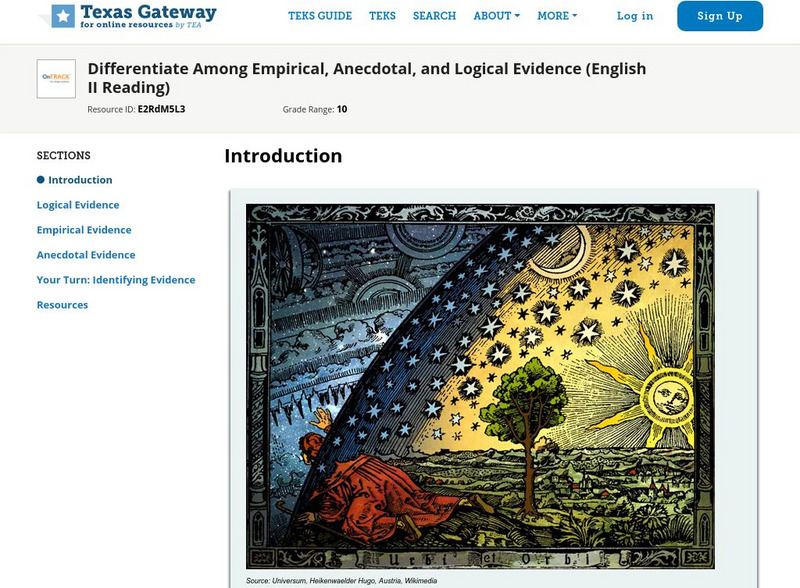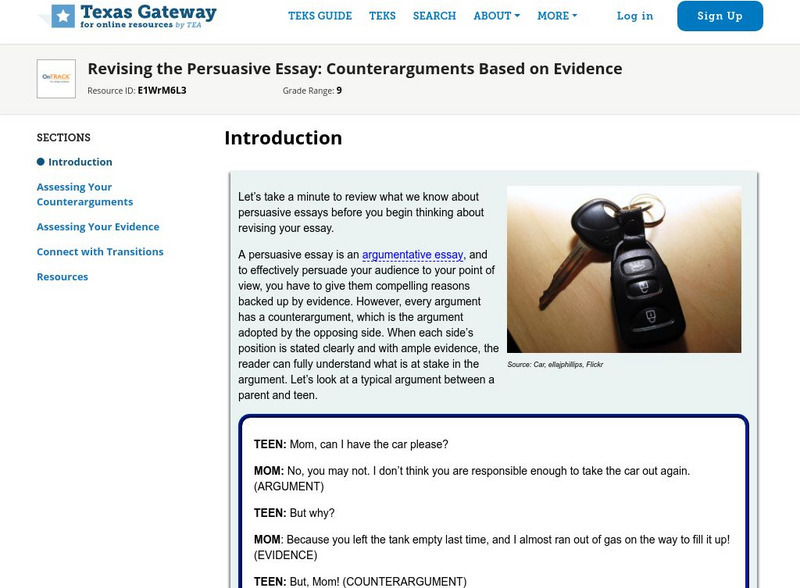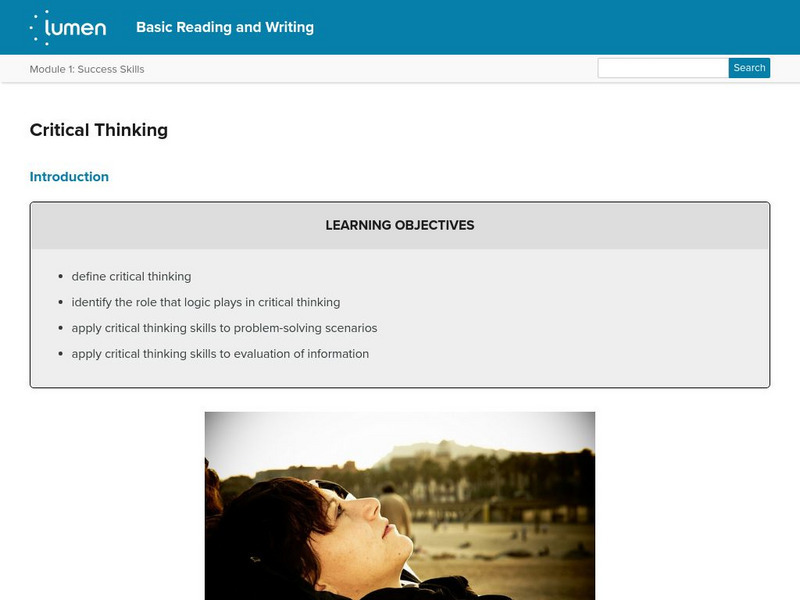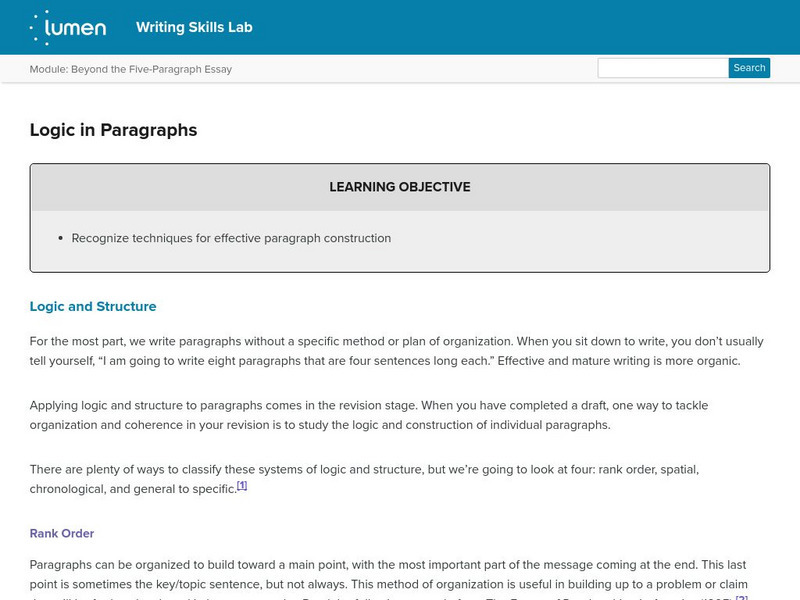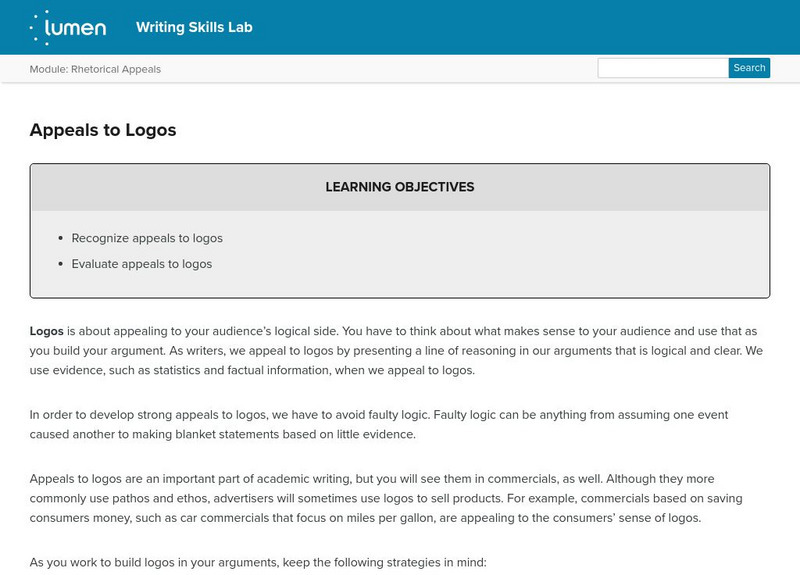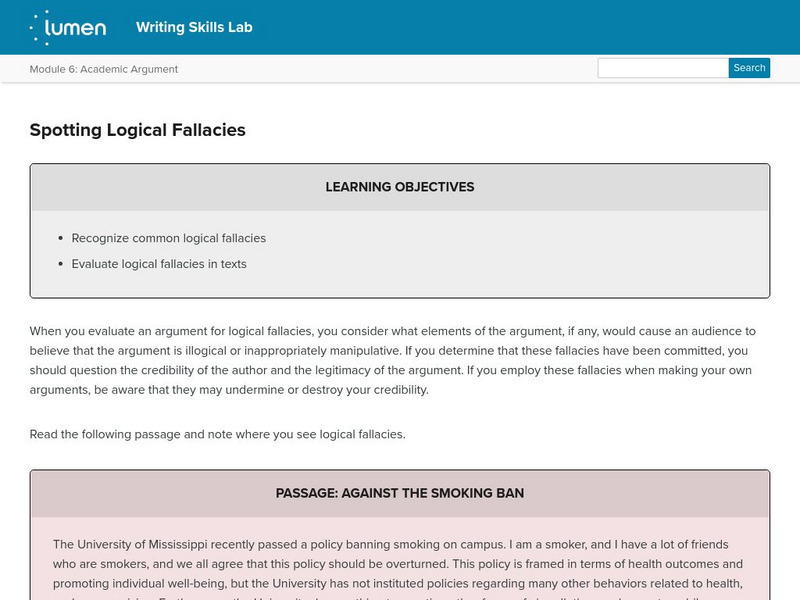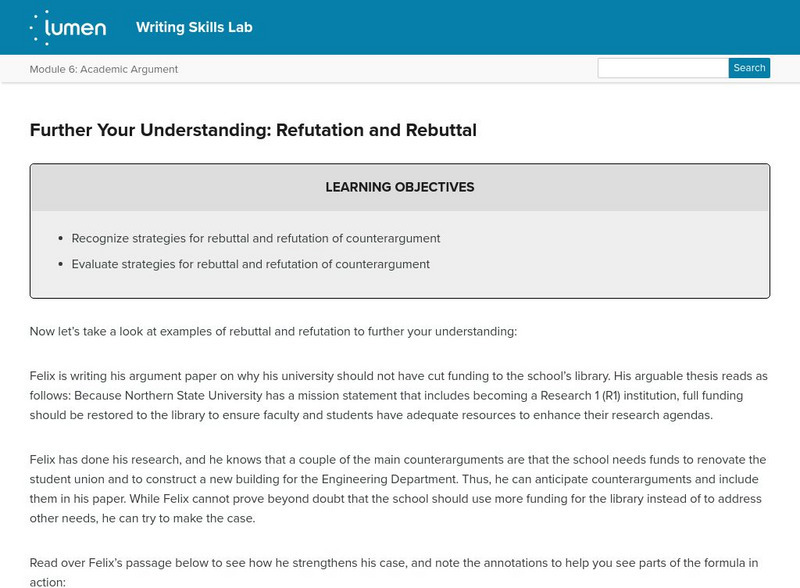Texas Education Agency
Texas Gateway: Analyze Shifts in Perspective in Informational/persuasive Text
[Accessible by TX Educators. Free Registration/Login Required] Explain shifts in perspectives in the same argument and make decisions about support used in those arguments.
Texas Education Agency
Texas Gateway: Differentiate Among Empirical, Anecdotal, and Logical Evidence
[Accessible by TX Educators. Free Registration/Login Required] Distinguish among different kinds of evidence in a text that supports conclusions and arguments in texts.
Texas Education Agency
Texas Gateway: Analyze an Argument: Practice 1 (English Ii Reading)
Analyze the quality, relevance, and credibility of evidence that supports or opposes an argument.
Texas Education Agency
Texas Gateway: Relevant Information and Valid Inferences (English I Writing)
[Accessible by TX Educators. Free Registration/Login Required] Learn strategies for evaluating and revising an essay so that it contains relevant information and valid inferences.
Texas Education Agency
Texas Gateway: Analyze an Argument: Practice 1 (English I Reading)
Analyze the quality, relevance, and credibility of evidence that supports or opposes an argument.
Texas Education Agency
Texas Gateway: Analyze the Relevance, Quality, and Credibility of Evidence
[Accessible by TX Educators. Free Registration/Login Required] Analyze the quality, relevance, and credibility of evidence that supports or opposes an argument.
Texas Education Agency
Texas Gateway: Revising the Persuasive Essay: Counterarguments Based on Evidence
[Accessible by TX Educators. Free Registration/Login Required] Learn strategies for evaluating and revising counterarguments that anticipate objections in an essay.
Lumen Learning
Lumen: Boundless Communications: Logical Appeals
This activity focuses on using logical appeals in persuasive speeches including inductive and deductive reasoning, inductive reasoning and associative reasoning, forming a rational appeal, and errors in reasoning-formal and informal.
Lumen Learning
Lumen: Success Skills: Critical Thinking
This activity focuses on critical thinking including a definition, examples, a video of critical thinking in action, logic in critical thinking, questions a critical thinker asks, guidelines for critical thinking, problem-solving, and...
Other
Bbc: H2g2 Circular Reasoning
Excellent definition and discussion of the term "Circular Reasoning," including a couple of very clear examples.
Lumen Learning
Lumen: Writing Skills: Conclusions
This lesson plan focuses on strategies for writing effective conclusions. It provides a list of strategies and a sample essay.
Lumen Learning
Lumen: Writing Skills: Logic in Paragraphs
This lesson focuses on logic in paragraphs including logic, structure, rank order, and organization.
Lumen Learning
Lumen: Rhetorical Appeals: Appeals to Logos
This lesson focuses on appeals to logos, or appealing to your audience's logical side including your types of source material, remembering your audience, and being sure to maintain clear lines of reasoning throughout.
Lumen Learning
Lumen: Rhetorical Appeals: The Star Criteria
This instructional activity focuses on the STAR Criteria for evaluating appeals to logos; it includes evaluating for Sufficiency, Typicality, Accuracy, and Relevance.
Lumen Learning
Lumen: Rhetorical Appeals: Kairos and Logos
This lesson focuses on the 4th logical appeal called Kairos, a time when conditions are right for the accomplishment of a crucial action; the opportune and decisive moment.
Lumen Learning
Lumen: Academic Argument: Practice: Argumentative Thesis Statements
This practice exercise focuses on recognizing and evaluating argumentative thesis statements.
Lumen Learning
Lumen: Rhetorical Appeals: Establishing Ethos
This lesson focuses on establishing ethos or credibility. You can establish ethos-or credibility-in two basic ways: you can use or build your own credibility on a topic, or you can use credible sources, which, in turn, builds your...
Lumen Learning
Lumen: Writing Skills: Common Logical Fallacies
This lesson focuses on logical fallacies including defining them, discussing the different types of logical fallacies, and a practice activity.
Lumen Learning
Lumen: Writing Skills: Spotting Logical Fallacies
This lesson focuses on recognizing common logical fallacies and evaluating them in texts. It also provides a practice exercise.
Lumen Learning
Lumen: Writing Skills: Formula for Refutation and Rebuttal
This lesson focuses on the formula for refuting and rebutting counterarguments including accurately representing opposing viewpoints, using a respectful, non-incendiary tone, using reliable information, using qualifying words to aid...
Lumen Learning
Lumen: Writing Skills: Further Your Understanding: Refutation and Rebuttal
This lesson plan focuses on examples of rebuttal and refutation to improve your understanding.
Lumen Learning
Lumen: Critical Reading: Logic and Structure
This instructional activity focuses on structure and logic including types and purposes of essays, organizational patterns, argumentative writing, and logic and fallacies.
Texas Education Agency
Texas Gateway: Informational Text: Analyze an Argument: Practice 1
When you read an argumentative essay or article, you should analyze the author's evidence. However, you can't analyze the evidence a writer gives in support of a position if you don't know the author's perspective.
Other
Learning Design Collaborative: Cer: Claim, Evidence, and Reasoning
Students write a scientific claim that is backed up by evidence and supported by scientific reasoning. Base your answer on your reading of a data table.



